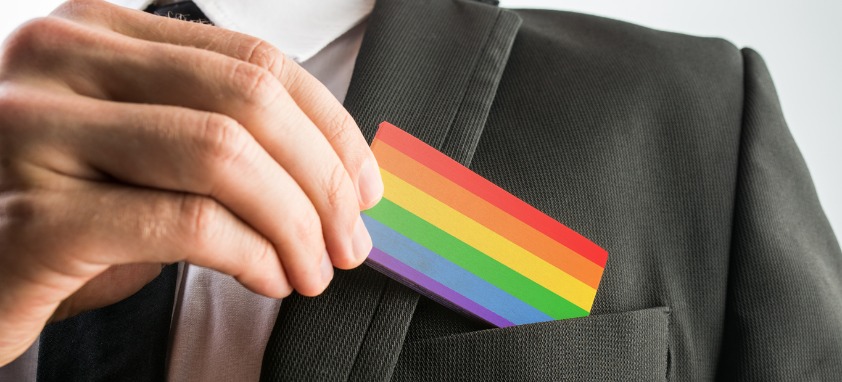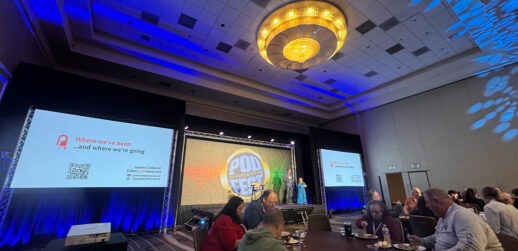Networking and “improving the image of the LGBT community” were listed as the most important initiatives in a new study by LGBT Meeting Professional Association (LGBT MPA). A little more than two years after the group was founded, 1,200 people have joined, according to LGBT MPA founder and Executive Director Dave Jeffreys, who is president of Altus Agency in Philadelphia.
He started the group because he saw that there was no support network for lesbian, gay, bisexual and transgender people in the industry. As the group neared its two-year anniversary, he contracted with a professor at Iowa State University to find out who was joining and where the greatest need remained.
“It turns out our members plan a lot of events, are experienced and are very well-educated,” Jeffreys said. The total buying power of the organization’s members was estimated at $2 billion per year—a spend that could result in $7.2 billion in financial impact, using industry calculators.
More than 13 percent of members plan meetings with budgets of more than $1.5 million. This included conferences (20 percent); corporate incentive, board meetings and product launches (20 percent); professional networking and training events (18 percent); and trade shows (14.5 percent). One-third have ceiling budgets of $100,000–$500,000. And 70 percent say their businesses are growing in the next year.
A Cross Section
The results from 170 association members by faculty member Eric Olson in the department of apparel, events and hospitality management at Iowa State University, also found:
- A supermajority (76 percent) identify as male; 23 percent as female and less than 1 percent as transgender.
- A majority (68 percent) identify as gay; 12 percent as bisexual; 9 percent as lesbian.
- Almost half (47 percent) are between 51 and 60 years old; 24 percent are under 40.
- Another supermajority (78 percent) identify as white; 8 percent as Latino or Hispanic; 7 percent as black; 2 percent as Asian.
- Almost half (43 percent) have undergraduate degrees; almost one-third (31 percent) have graduate degrees.
LBGT MPA Chair Jim Clapes, who is conference and events manager at Drug Policy Alliance, said reaching out to the female, lesbian community will be a priority in the coming year, “so we are practicing the diversity we preach.”
Surprising Findings
Jeffreys said he didn’t know what to expect from the report, but was surprised by the diversity of geographic locations and horizontal cross-section of the industry.
Respondents were concentrated in urban areas—Washington, D.C., San Francisco, Chicago, Los Angeles, New York City and Philadelphia—in descending order. LGBT MPA is also growing outside the United States. Visit Britain/Visit England just came on as a sponsor, joining more than 56 North American CVBs and travel-related businesses.
The population was pretty evenly divided between vendor/third-party agencies, destination marketing organization members, association meeting planners and corporate meeting planners. The rest fell in the category of independent meeting planner, hotel representative or venue manager.
Membership Benefits
https://www.facebook.com/lgbtmeetingprofessionals/videos/vb.128936377513277/325626888069336/?type=2&theater
While networking was high on the list, with more than 75 percent saying that was the most important service provided by the group, other priorities included education (16 percent), business listings (3.7 percent) and events (2.8 percent). The group has hosted three meetings during major industry association meetings, including one that drew 150 people at PCMA Convening Leaders 2019 in Pittsburgh. It is now planning regional events to bring people together with others in their area.
“This is a platform to connect over shared experiences and challenges,” Clapes said.
Respondents also said they hoped the group could improve the image, media visibility and understanding of the community, and provide resources and information that could help members be more successful.
The LGBT MPA board includes members from CVBs, major hotel chains and corporations, such as Nike. However, Clapes stressed that the group is not just for LGBT people. “We are a resource for anyone putting on an event who wants to be inclusive,” he said.
From tips for setting up nongender-specific restrooms to negotiating contracts that guard against being forced to hold an event in a city where legislation hostile to LGBT members is passed and incorporating more diverse voices in panels, he sees LGBT MPA as an industry resource.




